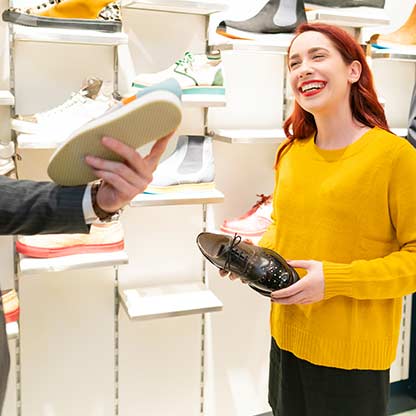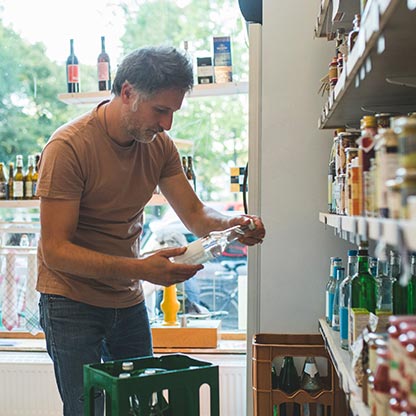However, the same research suggests that in the five years leading up to the pandemic, retailers in this category ranked changing consumer behaviours and online marketplaces among their biggest challenges. These have been brought into sharper relief in recent months.
To better understand how retailers can adapt to ongoing change, we spoke to Matt Turner, Founder and Chief Executive Officer of Australia’s largest bicycle company, Pedal Group, that operates the 99 Bikes and Advance Traders businesses.
Learnings from the first lockdown
Looking back to Pedal Group’s experiences in March as the first lockdown loomed highlights the range of factors that multi-channel retailers must consider. For Matt, after cutting through the “noise” surrounding coronavirus, the immediate goal was to find a way to responsibly keep the 99 Bikes retail stores open. After contacting the government, he implemented the recommended measures for keeping staff and customers safe in-store.
“We initially wondered how we would handle the shutdown of stores, but our focus quickly switched to managing a dramatic uplift in demand”, says Matt.
With more people exercising outdoors and avoiding public transport, that presented its own challenges and put pressure on Pedal Group’s suppliers. China figures prominently in Pedal Group’s supply chain, and even before the spike in demand, Matt realised that relying on Chinese suppliers could present a challenge. However, he would rather face supply shortages than a lack of demand and moved quickly to diversify.
“We felt empowered we could work with our suppliers to address demand”, Matt says. ”Our product sourcing team tracked products around the world, and with Europe in hard lockdown, many stores had excess stock. Having our team move quickly and proactively was a big win for us.”
Putting people first
The CommBank research undertaken in January 20202 revealed retailers that felt stronger than they were in 2015 were more likely to focus on developing a positive culture with a strongly connected workforce.
While many retailers are facing hardship due to coronavirus including having to reduce staff numbers, for Pedal Group, a surge in demand highlighted the importance of the business’ strong cultural foundations in helping motivate staff to go “above and beyond”.
“We have a system that collects customer feedback which we act on to provide a better customer experience,” Matt explains. “But as demand surged, we received feedback that indicated we weren’t operating to our normal standards and we attributed that to having a lack of staff on the front line which impacted customer service.
“At the time, staff numbers were down 10 to 20 per cent due to coronavirus, so we set out to recruit more staff and increased engagement with the existing team.”
“To maintain strong customer service levels, we rely on having motivated staff on the front line, and we appreciated that their job was becoming harder. Approximately 70 employees own around 13 per cent of the company’s shares, so our core model of incentives and communication helped motivate people so that we could all benefit from any upside.”
“But it’s not just financial factors that motivate people. It’s also about purpose. Everyone in the team is passionate about cycling and environmental sustainability, so it was uplifting to see so many new customers sharing in what they love.”
Mindset matters
Matt is a strong advocate for focusing on the factors he can control, a trait that previous CommBank research showed was common among successful retailers3. Matt says that hasn’t changed during the coronavirus era, despite having to completely re-think some areas of Pedal Group’s operations.
“We normally prioritise bike repairs over adding newly built bikes to in-store inventory,” Matt says. “Now, so many people want new bikes and, given we had limited resources, we had to turn away business on the repair side.”
The CommBank research conducted pre-pandemic2 also highlighted that many ‘other retailers’ were grappling with online marketplaces, while consumers said that they were the single most significant contributor to the changing experience when shopping for ‘other retail’ items.
However, for Matt, he says that Pedal Group is purposefully prioritising its own website which not only does it control but is also a valuable source of information for customers and a “massive” part of the business.
“We view our own website as our most important marketing tool, helping customers to shop and choose items, see our range and locate stores. That’s our priority rather than increasing online sales through marketplaces as it delivers more value to customers.”
Matt’s view is consistent with previous CommBank research on online marketplaces that found only 11 per cent of ‘other retail’ respondents consider online marketplaces to be their priority sales channel, with 35% focusing on their own website.4
So, while Pedal Group has been in the fortunate position to have experienced strong demand from customers since coronavirus took hold, its approach hasn’t wavered. As Matt says, “For retailers, it’s all about people.” And when combined with a focus on factors within the business’ control like their online presence, Pedal Group was able to move in closer step with changing customer behaviours.




